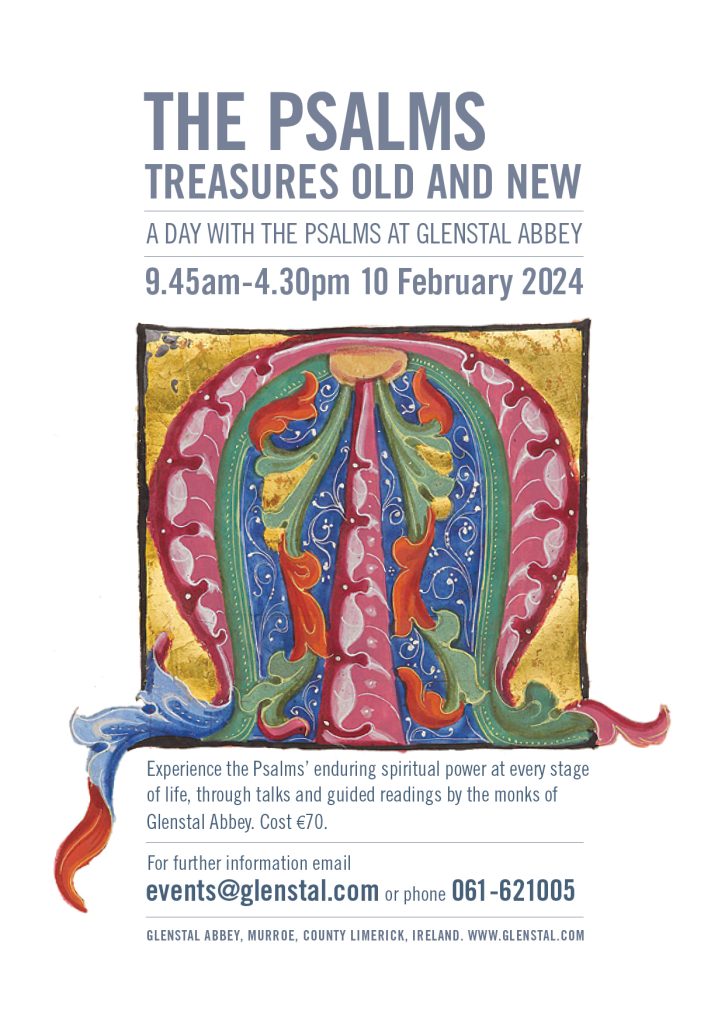Fr Luke Macnamara OSB
The Mass is a place of encounter. We, the baptised are called by the Holy Spirit to celebrate together the mystery of Jesus’ death and resurrection. At the Mass we encounter and listen to the Word of God which is a lamp for our feet and a light for our paths. This light is necessary as we so often find ourselves in dark places either due to our own actions, those of others, or sometimes by chance. The Word shines a light in our darkness that the dark cannot overcome.
The readings today provide an indication of the illuminating power of the Word of God in various situations. First up is Jonah who has been commanded to go to Nineveh and proclaim: “Forty more days and Nineveh will be destroyed”. Nineveh is the capital of Assyria, a nation that is foremost among Israel’s enemies. This wicked city is unlikely to respond to a Jewish prophet. Jonah didn’t want to go there but finally accepts the Lord’s command. He is fearful that what the Lord says will not happen, and that he and the Lord will be shamed. The people of the city from the greatest to the least repent, fast and pray, so that the Lord changes his mind. The physical city of Nineveh is not destroyed and so Jonah is in one sense proved right. However the wickedness of the city is no more, so in a more real sense, the preaching of God’s word has destroyed the old Nineveh and something new and wonderful emerges. Might this transforming word have something to say to us in Ireland? Might this word have something to say to us at Glenstal, monastery and school, that we might be transformed? Might we have the courage to recognise failings and be open to new possibilities?
St Paul relativises all human possessions and relationships. The kingdom is coming. Possessions and concern for status will only weigh us down. God is calling us his children to take our places in the Kingdom. God calls us for who we are, not for what we have. Today, there is a real need to reconnect with who we are and who God wants us to become. God’s word has been sown in our hearts and knows us better that we know ourselves. The Word knows our deepest desires for life and happiness and so is best placed to guide us. This is why St Benedict places so much emphasis on listening to the Word in his Rule – monks are to spend about a third of the waking hours of each day reading and listening. The Word of the Lord calls out daily to each of us but how often do we listen?
Jesus proclaims the Good News to the people of Galilee, a word that is also spoken to us: “The time has come and the kingdom of God is close at hand. Repent, and believe the Good News.” Now is the time, near is the kingdom, best is this Good News for us all. Much like the fishermen, Simon and Andrew, and James and John, we have doubts, personal failings and weaknesses, but God’s word works in and through us. We have only to take up the invitation, to let the word perform its surgery on our hardened hearts and so make them hearts for love. The unlikely transformation of Nineveh, the greatest of sin, and of the all too ordinary fishermen with their weaknesses, should encourage us.
We may be in dark places, we may have personal failings, but God’s word lightens the darkest places and strengthens the weakest parts of ourselves. Let us open our eyes to the divine light and listen to the voice of the Lord, whose Word is the best compass for navigating our personal journeys, who guides our hearts to choose the way of life and happiness and who ultimately will bring us to our true harbour, life with the Trinity in eternity.



